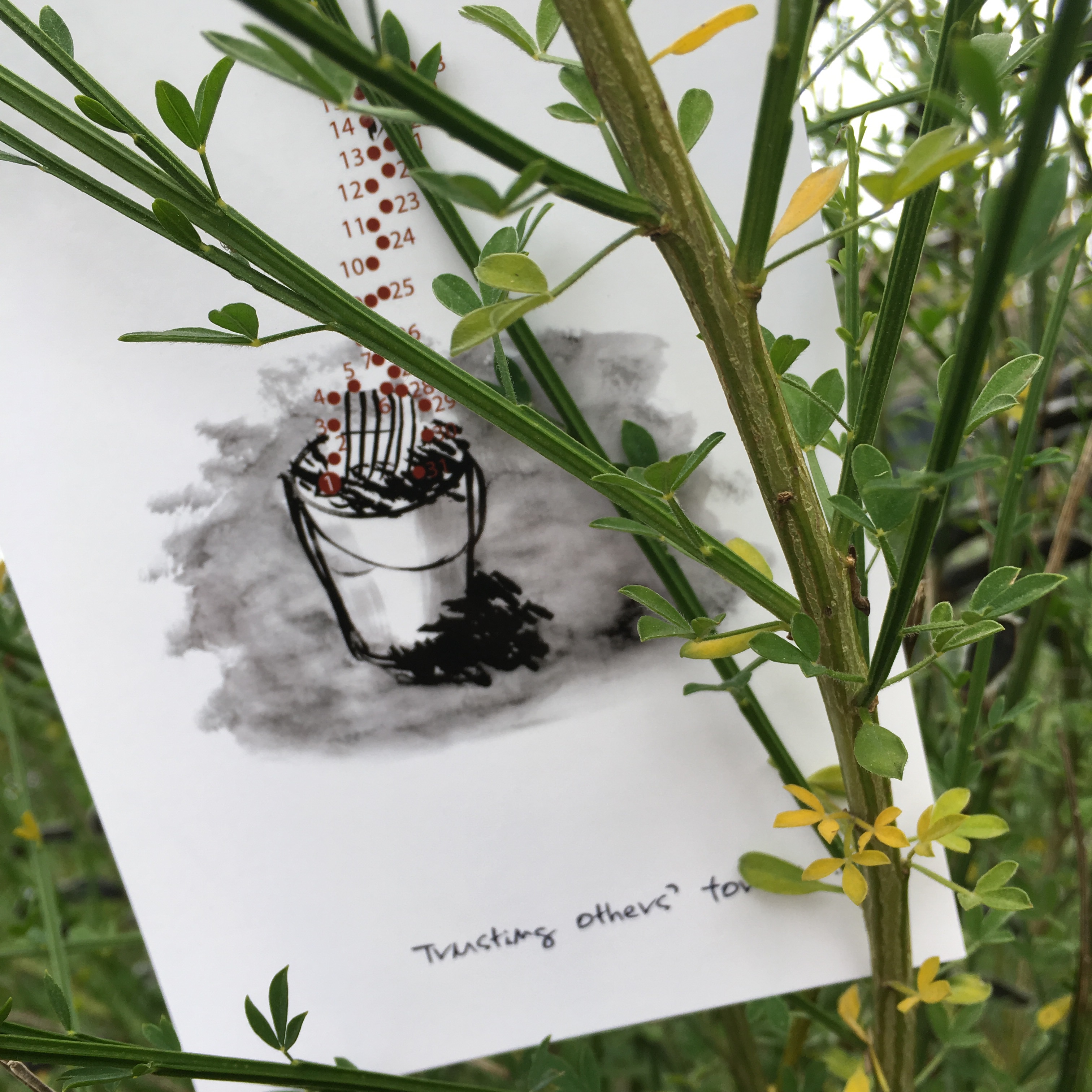“When you trust someone, you trust the whole person, just as he or she is, and not as you would like them to be”, says Oiq. You hired Oiq, a shaman healer from the Easter Islands, for a board workshop on trust after your latest employee survey rated this dimension lowest of all company values for the third time in a row. From production to sales, from accounting to marketing, and from top management to temporary workers, everybody complains that nobody trusts anybody anymore.
“Trust”, Oiq continues, “cannot grow where mistrust resides. So the prerequisite for trust is that you get rid of all traces of mistrust. I call this process ‘kill all relics of mutual animosities’ – k.a.r.m.a., in short”. Your head feels dizzy and your vision is blurred. Somewhere in the distance, a train rumbles by and a horse neighs.
You doze off. In a hazy dream, you find yourself in the middle of a wheat field amongst cradlers mowing with giant egg spoons.
In a limbo state between awake and asleep, you imagine hearing Oiq’s voice: “All happy companies are alike…”.
All leaders are regularly confronted with grievances about lack of trust in their organizations. Investigating such grievances mostly results in employees reporting that they feel insufficiently trusted by their managers. It is less frequent for managers to complain that they feel insufficiently trusted by their employees. And never is anybody reporting that they themselves worry about not being able to extend trust to others. It seems that, in general, people don’t ever doubt their own ability to trust others, but quite often mistrust others’ ability to trust, especially when it comes to those higher up in the hierarchy.
In some ways, people are right: A leader’s task is – among other things – to not take at face value whatever is presented to them: The sales figures for next year might be overestimated, the business case for the new production site might be miscalculated, and Oiq might not have any genuine insights into trust-building at all. Leaders need to ask the right questions to probe what can be trusted – and what needs to be revised. In this sense, not trusting is part of any leader’s job description. At the same time, overdoing such investigations will be experienced as micro-management, intrusion, and ultimately lack of trust.
The only way out of this dilemma is to help people get better at understanding when and where they can trust themselves – and when and where they need to ask for help, for support, or for more information. Leaders need to trust others’ forces to assess their own knowledge and capabilities realistically. With this, they’ll be able to raise the overall level of trust in their organizations.
You wake up with a jolt. “You misquoted Tolstoi”, you say. “I think we’d rather continue the discussion without you. Because if it is true that there are as many minds as there are heads, then there are as many kinds of trust as there are hearts”.

* This is the fifth of a series of blog posts exploring some uniquely motivating mindfully elaborated ramblings (s.u.m.m.e.r.) of mine, written during my summer vacation in 2019, investigating topics and trends relevant for leaders in today’s multilayered world. All persons, situations, and dialogues quoted are purely fictional, albeit informed by what I see happening in companies I work with. If you want to know what I do when I work, read more here and here [retrieved July 9, 2019].
